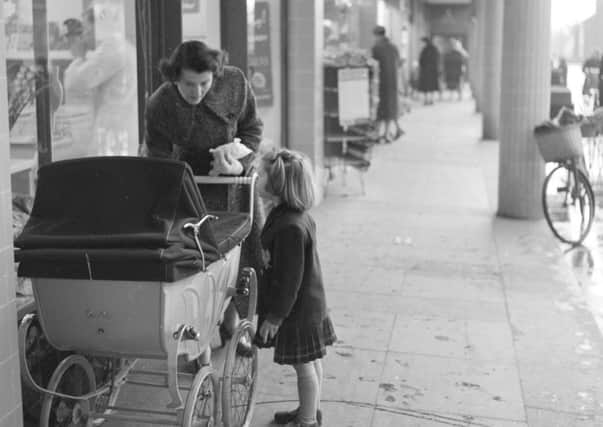How a work of fiction offers real hope


There was a time, not long ago, when families were determined to avoid the stigma of an unmarried daughter living at home with a child whose father was “unavailable” or unknown. In appreciable numbers, young mothers came under great pressure to give up their babies for adoption.
At that time, the charity that was to become Birthlink actively pursued a policy of placing babies for adoption. Later, often much later, the agency was approached by people hoping to solve the mystery of their own birth or discover the whereabouts of a long lost parent or child. Since the early 1980s, Birthlink has offered a unique suite of services designed to make that possible.
Advertisement
Hide AdAdvertisement
Hide AdIt should be no surprise, then, that people at Birthlink were delighted to discover a remarkable novel, Ghost Moon, by Edinburgh poet and novelist Ron Butlin.
In fictional form, the author explores the story of his own mother.
Pregnant and unmarried, she was disowned by her family and forced by circumstances to leave her baby in a children’s home. To get him back, she had to find a job and somewhere to live where she could bring up her child.
To this day, Butlin doesn’t know the whole story of what his mum went through.
In Ghost Moon, the mother’s story is revealed through her memories in old age. It draws on, but does not mirror, his mum’s story. What inspired him to share this story through a novel?
Butlin explains that, for him, a piece of work can often begin with just a simple phrase or sentence. In this case, it was: “You are walking the length of the ship and back again.”
Often, as in this case, the words seem to come from nowhere, at a difficult time, when he’s preoccupied with or troubled by other matters. His subconscious offers answers to questions he doesn’t know he’s asking.
Butlin says his mum didn’t tell him or his sister much about what happened. He learned that she went to Canada, by ship, where she had relatives, but got little help from them. He gathered that her immediate family had reacted very badly but she didn’t go into details about that.
Advertisement
Hide AdAdvertisement
Hide AdShe did talk about a sister-in-law who had really helped her and been her guardian angel. She appears in the novel alongside other characters who are wholly imagined.
Butlin’s mother, Betty, was a strong woman. The fictional Maggie shows many of Betty’s characteristics: she draws on her emotional strength, determination and courage to tackle the fictional but very real obstacles she has to overcome.
Ghost Moon is no misery memoir. It is a rattling good read – a real page turner. There is lot of humour in the book, much of it in Maggie’s head as she contemplates the challenges she faces. Butlin sets out a range of vivid and intriguing characters, and creates a series of dramatic interactions, carrying the reader along to the story’s conclusion.
Although he has no memory of the home where he spent his first two years, Butlin has been fascinated to hear how some homes trained the mothers as nurses as well as looking after the children until they were adopted. His awareness of his own early years has made him sensitive to the feelings of adopted children.
He understands that if you are dispossessed of your identity and don’t know where you come from, or where you belong, then your life must be pretty hard and the need for some contact with your birth family may be very strong. And he knows by speaking to mothers who have been forced to give up their children how many of them long to be reunited.
He also remembers a very old woman approaching him at a reading and confessing that she and her husband had thrown their daughter out when they found out she was pregnant.
She said it was the worst thing she had ever done in her life.
Butlin has been glad to learn that Birthlink’s files and Adoption Contact Register can be accessed by people who have been adopted and by families who have given up a child to be adopted. It is very rewarding for Birthlink staff to find that they have a match, that both parties have expressed a wish for contact and welcome the social work support to guide them through what can be a difficult process of reunion and adjustment.
Advertisement
Hide AdAdvertisement
Hide Ad• Ron Butlin is an internationally recognised prize-winning novelist and poet. He was the Edinburgh Makar from 2008-14. Ghost Moon, Salt Publishing, 2014. Jean Taylor is a freelance writer living and working in Edinburgh. Birthlink is an Edinburgh-based charity with more than 100 years of experience of working with families. www.birthlink.org.uk
SEE ALSO